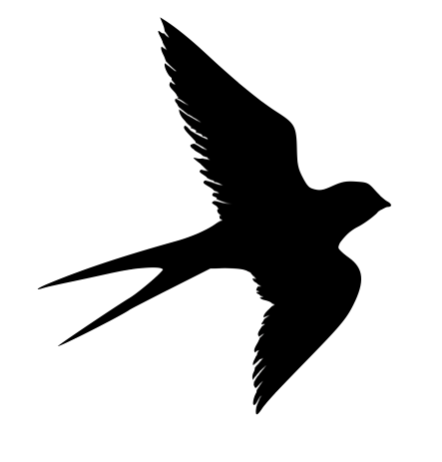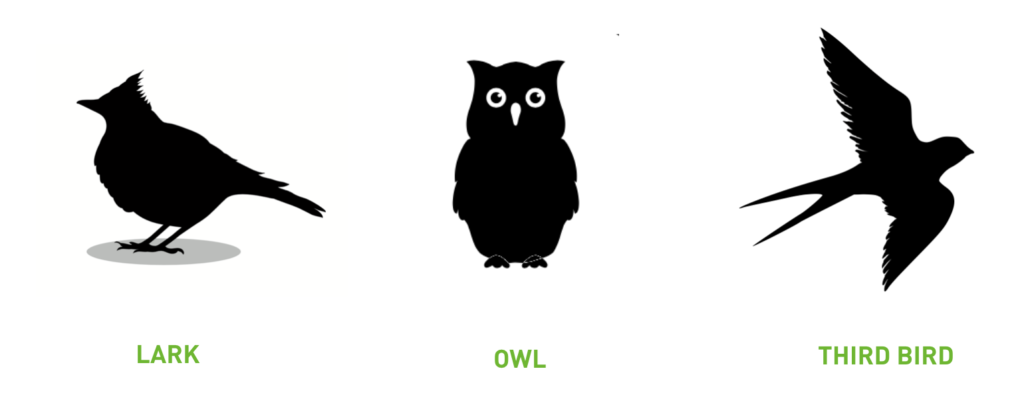
Newsflash Homo Sapiens! You always thought your evolutionary ancestors were the good ol’ apes. Well you are so wrong. In fact you were never even a Neanderthal that you thought you once were. You are quite simply just a bird! No, not the Big Bird from Sesame Street but perhaps one of three types – an owl, a lark or just some nameless “third” bird. With all the theories of evolution out there Homo Duckus was not something you quite pictured your ancestors to be. Well it’s not exactly what you think (or what I made you to think)…
On a serious note, this concept of the three birds is something I came across in Daniels Pink’s latest book “When”. In one of the chapters he uses the analogy of a bird to explain how your performance throughout the day is impacted by the type of bird you are. Before getting into that, let’s first understand where is all of this thinking originating from. The idea of your effectiveness being determined by the time of day comes from the science of chronobiology.
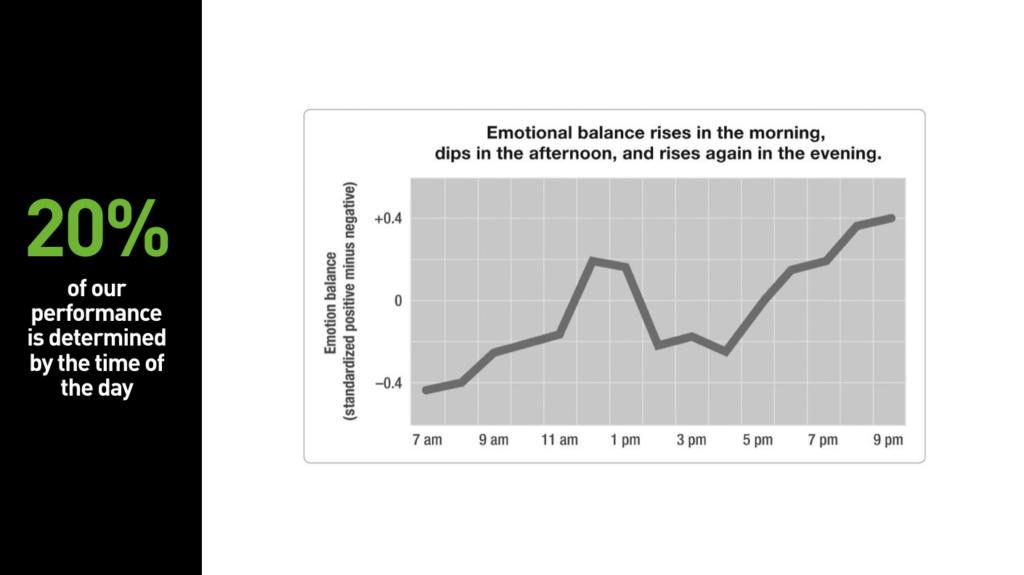
The concept is that at least 20% of your performance is determined by the time of the day. For perspective when Sir Dave Brailsford took the helm of the British Cycling team in 2002 the track record for the team was one gold medal in its 76-year old history! During the 2008 Beijing Olympics his team won seven out of ten golds and then repeated the same performance four years later at the London Olympics. How did he do it? He applied the theory of marginal gains to cycling by improving each element by just 1%, which in turn lead to an aggregate improvement in performance. If an improvement of 1% can change a silver to a gold medal imagine what a 20% improvement can do. Not exactly apples to apples. Nevertheless, the point being that chronobiology could simply be the difference between rising to take the helm of your organization or just obscuring away into mediocrity.
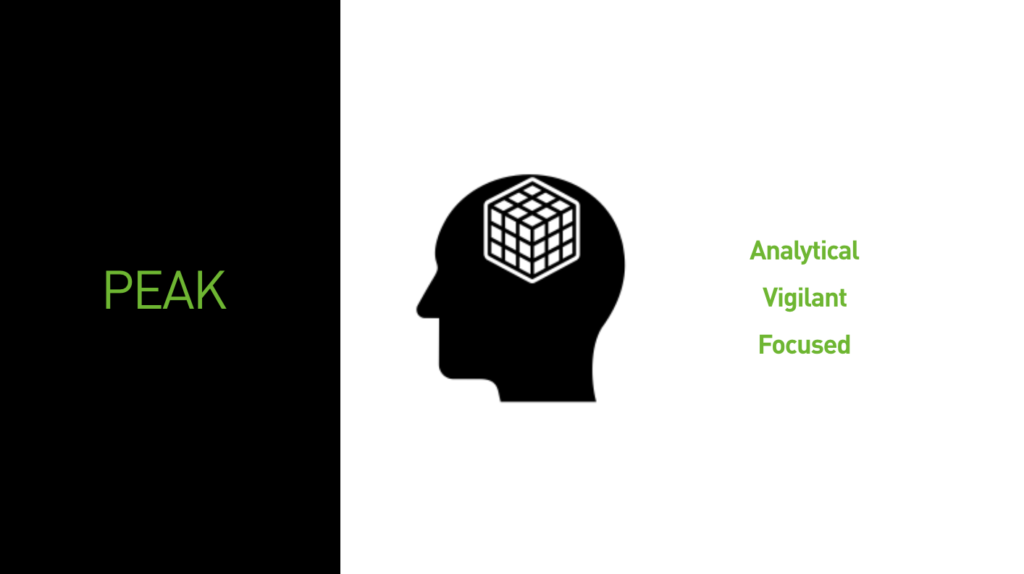
The key learning from chronobiology is that our emotional state goes through a cycle throughout that day and this has implication on the type of tasks we are optimized to do during certain parts of the day. When we are at our peak we are best geared to work on tasks that require focus and sustained attention. This is the time when we should aim to make decisions that bend under the force of logic. For example, if you need to do some strategic thinking this is the time to get analytical and immerse in data, as this is the time when we are most vigilant. This peak lasts for about seven hours after we wake up. Then we hit a trough. Approximately this is about 2pm for most people.
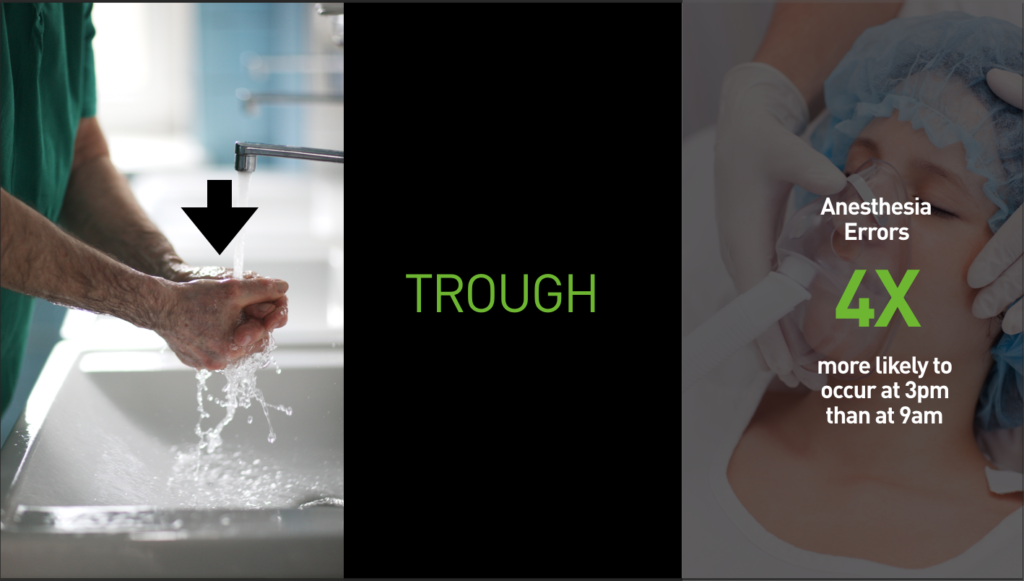
While it may not mean much for most professions. I would avoid any kind of medical appointment around this time. Why? Data suggests that hand washing in hospitals is at its lowest around this time. Similarly, anesthesia errors are four times more likely to occur at 3pm than at 9am. Just saying.
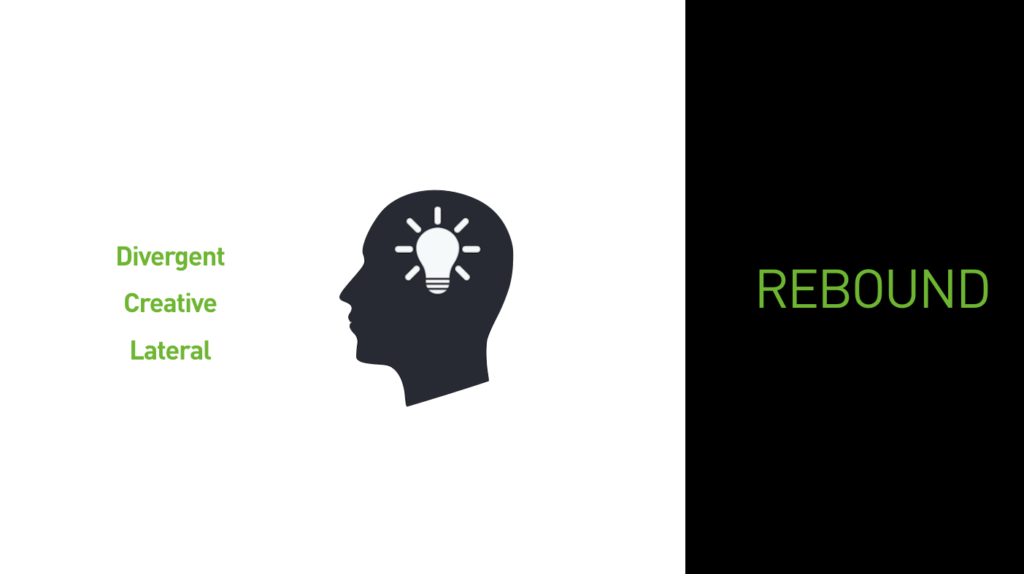 After the trough we begin our rebound. This is the time to focus on divergent thinking. We are more creative and likely to come up with lateral solutions than at any other time of the day. For tasks that require ideation and innovative thinking this is the time to do it. What does this mean for your day-to-day schedules? Think about how you schedule your work. The most common metric that drives scheduling decisions today is simply availability. We could be so much more effective if we plan our days keeping the concept of chronobiology in mind. Therefore the next time you want to brainstorm ideas with your team be sure to schedule those in the afternoon.
After the trough we begin our rebound. This is the time to focus on divergent thinking. We are more creative and likely to come up with lateral solutions than at any other time of the day. For tasks that require ideation and innovative thinking this is the time to do it. What does this mean for your day-to-day schedules? Think about how you schedule your work. The most common metric that drives scheduling decisions today is simply availability. We could be so much more effective if we plan our days keeping the concept of chronobiology in mind. Therefore the next time you want to brainstorm ideas with your team be sure to schedule those in the afternoon.
So what does all of this have to do with the kind of bird you are? Your chronobiology differs from individual to individual. And broadly it can be divided into three main types, and hence the bird analogy. To determine what type of bird you are, you have to note what time you wake-up in the morning on a Sunday (this is because you are not likely to be bound by any commitments to work or school and would follow your natural chronobiology).
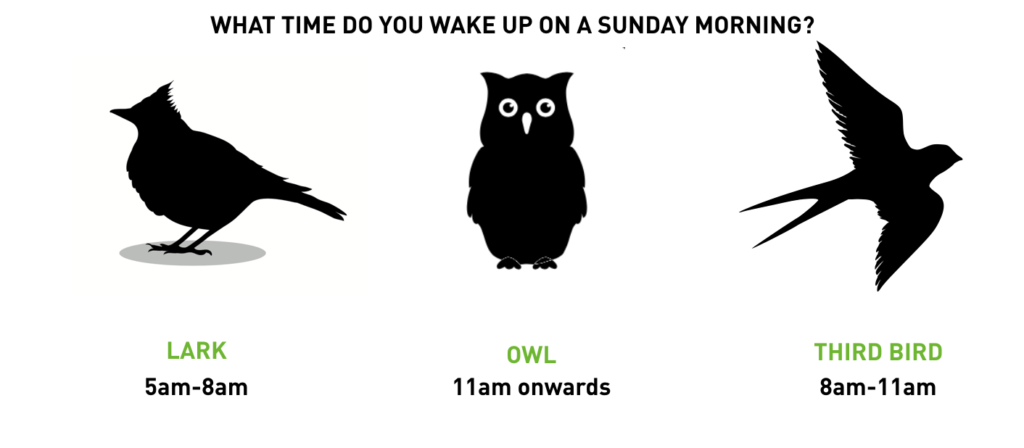
If you wake up between 5am and 8am then you are a lark (roughly 15% of the population). If you wake up after 11am then you are an owl (about 20% of people). And if you wake up anywhere between 8am-11am then you are a third-bird (this is where the majority 65% of the people lie).* And these differences further complicate the best times to undertake a certain task based on your chrono type as it will impact when you reach your peak and trough. While larks maybe their most productive at 9am, an owl maybe struggling through this time and would only reach full productivity by mid-day. In this respect a 9 to 5 routine is most counter-productive for owls. Therefore, If you are an owl hope you are not in a profession that demands a strict 9 to 5 schedule. For everyone else, how would you schedule your day now that you know your chrono type?
